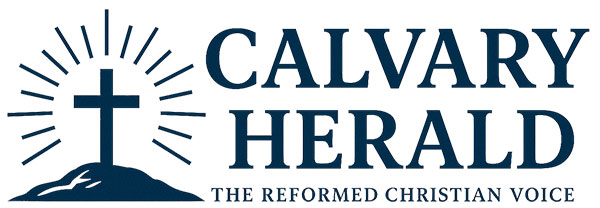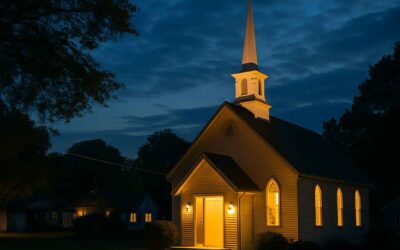“Pure religion and undefiled before God and the Father is this, To visit the fatherless and widows in their affliction, and to keep himself unspotted from the world.” (James 1:27)
This verse has been memorized, quoted, and recited in countless sermons. Yet in the modern church—especially in the comfortable West—its call often remains tragically neglected. In a world of megachurches and social media ministries, caring for widows and orphans seems too mundane, too inconvenient, or too difficult to prioritize. And yet, James calls it pure and undefiled religion. Why?
In this feature, we explore the profound significance of James 1:27 within the Reformed Baptist worldview. We will consider its historical context, theological implications, and practical applications for today’s believers. The aim is not mere intellectual reflection, but repentance, renewal, and action.
The Forgotten Call in a Post-Christian World
The first-century audience of James lived in a world where widows and orphans were among the most vulnerable. Without a husband or father, they lacked legal protection, financial provision, and social standing. They were often left to beg, enslave themselves, or perish.
James writes in this context. His words remind us that the Christian faith, rooted in the gospel of grace, expresses itself not only in orthodoxy but in orthopraxy—faith lived out in love.
In our day, the vulnerable still abound: single mothers struggling to survive, foster children shuffled between homes, elderly widows languishing in isolation. Though we may not see them begging at our gates, their cries rise as loudly as in the first century. Are we listening?
Pure Religion: More Than Sunday Worship
For James, religion is not confined to rituals or verbal professions of faith. It is faith that works (James 2:17). This is not a denial of justification by faith alone. Rather, it is an echo of Jesus’ teaching:
“By this shall all men know that ye are my disciples, if ye have love one to another.” (John 13:35)
The London Baptist Confession of 1689 states:
“Good works, done in obedience to God’s commandments, are the fruits and evidences of a true and lively faith…” (Chapter 16)
Thus, caring for widows and orphans does not earn salvation but demonstrates it. It reflects the heart of our Redeemer, who came to seek and save the lost.
The Heart of God for the Vulnerable
Throughout Scripture, God reveals Himself as the defender of the defenseless:
“A father of the fatherless, and a judge of the widows, is God in his holy habitation.” (Psalm 68:5)
Israel was commanded to provide for the orphan and widow (Deuteronomy 14:29), and the prophets condemned those who neglected them (Isaiah 1:17; Malachi 3:5). Christ’s ministry was marked by compassion for the marginalized. To follow Him is to follow in those footsteps.
The Modern Challenge: Barriers to Obedience
Why is this call so often neglected today?
1. Cultural Individualism
Western culture prizes autonomy and privacy, leading many Christians to see others’ suffering as “not my responsibility.”
2. Institutionalization of Care
We assume governments or nonprofits will handle widows and orphans, forgetting that the church has historically led in these areas.
3. Comfort and Convenience
Caring for the vulnerable requires time, resources, and emotional investment. Many would rather donate money than get involved personally.
Practical Steps for Reformed Churches
How can we recover the pure and undefiled religion James describes?
1. Rediscover Biblical Hospitality
Open your home and your life. Invite widows for meals. Offer respite to foster families. Practice the ministry of presence.
2. Support Adoption and Foster Care
Encourage and assist members considering adoption or fostering. Offer practical support—childcare, meals, financial aid.
3. Care for Elderly Widows
Visit nursing homes. Advocate for widows in your congregation. Create deacon-led ministries to ensure no one is overlooked.
4. Equip the Body
Teach and preach about the biblical mandate. Cast a vision for holistic care rooted in the gospel.
5. Pray and Plan Strategically
Pray for eyes to see the needs around you and for courage to meet them. Develop a church-wide plan for widow and orphan care.
The Gospel Motivation
Our care for widows and orphans must flow from gospel transformation, not guilt or duty alone. Christ became poor that we might become rich (2 Corinthians 8:9). He adopted us as sons and daughters when we were spiritual orphans (Ephesians 1:5).
This truth compels us:
“We love him, because he first loved us.” (1 John 4:19)
A Countercultural Witness
In an age of self-centeredness, a church that prioritizes widows and orphans shines brightly. It embodies the kingdom ethic that confounds the world and attracts the weary.
This is not optional. It is a test of our faith’s vitality. As John Calvin wrote:
“It is a cold and worthless faith which does not produce love for the brethren.”
Making the Forgotten Call Unforgettable
Caring for widows and orphans is not a side ministry; it is at the heart of true religion. It reflects the heart of our Father, glorifies Christ, and adorns the gospel with beauty.
“Learn to do well; seek judgment, relieve the oppressed, judge the fatherless, plead for the widow.” (Isaiah 1:17)
The call of James 1:27 is as urgent today as when first penned. Will we obey?




0 Comments